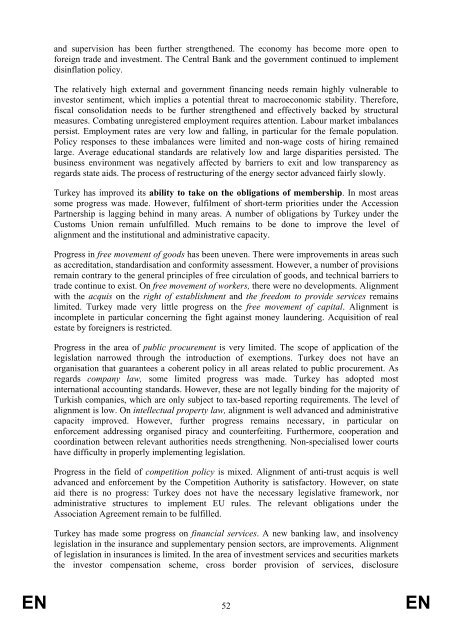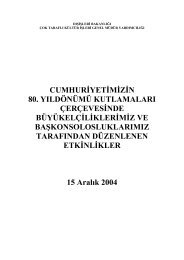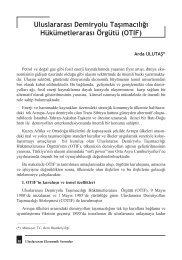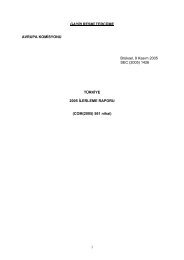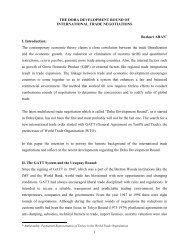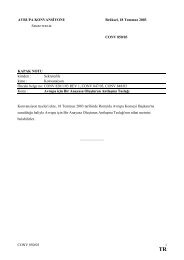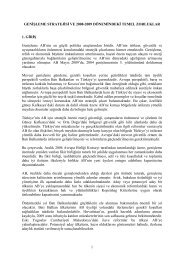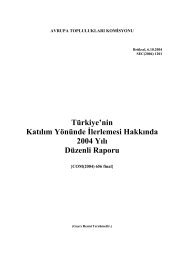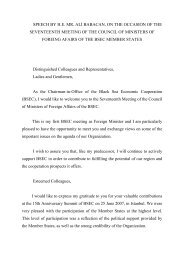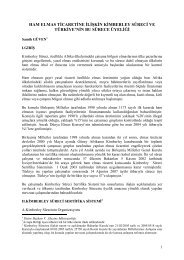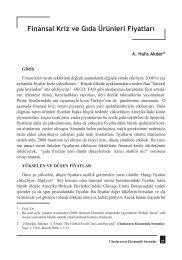Enlargement Strategy and Main Challenges 2006 - 2007
Enlargement Strategy and Main Challenges 2006 - 2007
Enlargement Strategy and Main Challenges 2006 - 2007
You also want an ePaper? Increase the reach of your titles
YUMPU automatically turns print PDFs into web optimized ePapers that Google loves.
<strong>and</strong> supervision has been further strengthened. The economy has become more open to<br />
foreign trade <strong>and</strong> investment. The Central Bank <strong>and</strong> the government continued to implement<br />
disinflation policy.<br />
The relatively high external <strong>and</strong> government financing needs remain highly vulnerable to<br />
investor sentiment, which implies a potential threat to macroeconomic stability. Therefore,<br />
fiscal consolidation needs to be further strengthened <strong>and</strong> effectively backed by structural<br />
measures. Combating unregistered employment requires attention. Labour market imbalances<br />
persist. Employment rates are very low <strong>and</strong> falling, in particular for the female population.<br />
Policy responses to these imbalances were limited <strong>and</strong> non-wage costs of hiring remained<br />
large. Average educational st<strong>and</strong>ards are relatively low <strong>and</strong> large disparities persisted. The<br />
business environment was negatively affected by barriers to exit <strong>and</strong> low transparency as<br />
regards state aids. The process of restructuring of the energy sector advanced fairly slowly.<br />
Turkey has improved its ability to take on the obligations of membership. In most areas<br />
some progress was made. However, fulfilment of short-term priorities under the Accession<br />
Partnership is lagging behind in many areas. A number of obligations by Turkey under the<br />
Customs Union remain unfulfilled. Much remains to be done to improve the level of<br />
alignment <strong>and</strong> the institutional <strong>and</strong> administrative capacity.<br />
Progress in free movement of goods has been uneven. There were improvements in areas such<br />
as accreditation, st<strong>and</strong>ardisation <strong>and</strong> conformity assessment. However, a number of provisions<br />
remain contrary to the general principles of free circulation of goods, <strong>and</strong> technical barriers to<br />
trade continue to exist. On free movement of workers, there were no developments. Alignment<br />
with the acquis on the right of establishment <strong>and</strong> the freedom to provide services remains<br />
limited. Turkey made very little progress on the free movement of capital. Alignment is<br />
incomplete in particular concerning the fight against money laundering. Acquisition of real<br />
estate by foreigners is restricted.<br />
Progress in the area of public procurement is very limited. The scope of application of the<br />
legislation narrowed through the introduction of exemptions. Turkey does not have an<br />
organisation that guarantees a coherent policy in all areas related to public procurement. As<br />
regards company law, some limited progress was made. Turkey has adopted most<br />
international accounting st<strong>and</strong>ards. However, these are not legally binding for the majority of<br />
Turkish companies, which are only subject to tax-based reporting requirements. The level of<br />
alignment is low. On intellectual property law, alignment is well advanced <strong>and</strong> administrative<br />
capacity improved. However, further progress remains necessary, in particular on<br />
enforcement addressing organised piracy <strong>and</strong> counterfeiting. Furthermore, cooperation <strong>and</strong><br />
coordination between relevant authorities needs strengthening. Non-specialised lower courts<br />
have difficulty in properly implementing legislation.<br />
Progress in the field of competition policy is mixed. Alignment of anti-trust acquis is well<br />
advanced <strong>and</strong> enforcement by the Competition Authority is satisfactory. However, on state<br />
aid there is no progress: Turkey does not have the necessary legislative framework, nor<br />
administrative structures to implement EU rules. The relevant obligations under the<br />
Association Agreement remain to be fulfilled.<br />
Turkey has made some progress on financial services. A new banking law, <strong>and</strong> insolvency<br />
legislation in the insurance <strong>and</strong> supplementary pension sectors, are improvements. Alignment<br />
of legislation in insurances is limited. In the area of investment services <strong>and</strong> securities markets<br />
the investor compensation scheme, cross border provision of services, disclosure<br />
EN 52 EN


